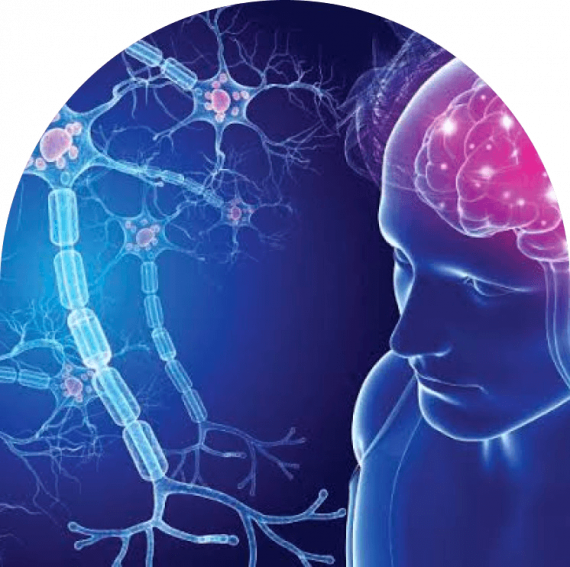
Multiple Sclerosis (MS) is an autoimmune disorder affecting the central nervous system. The immune system attacks the nerves of the brain and spinal cord. Body movements may become slow or uncoordinated because signals from the brain to the muscles deteriorate, or arms and legs may feel numb because sensations from the extremities no longer reach the brain. The condition becomes progressively worse over time if not effectively treated. Although there is no cure, medications can help reduce inflammation and lengthen periods between attacks.
Certain populations have an increased risk of developing MS. Whites are more than twice as likely as other races to develop MS, and women are affected almost twice as often as men.
Geography and climate may also impact an individual's MS risk factor. MS is five times more prevalent in the northern United States, Canada, and Europe than in tropical regions.
Most people experience their first symptoms of MS between the ages of 20 and 40. While symptoms rarely begin before age 15 or after age 60, scientists have documented the initial symptoms of MS at almost every age. When symptoms occur, they can include:
- Dizziness, blurred or double vision
- Muscle weakness in the arms and legs
- Difficulty with coordination and balance
- Muscle stiffness and spasms
- Numbness, prickling or tingling sensations
- Difficulty with concentration, attention span and memory
- Fatigue
- Speech impediments
- Tremors
Unfortunately, there is no clear combination of symptoms or test results that can definitively say a person has MS. Health care providers use an array of testing strategies to determine if a person meets the criteria for a diagnosis of MS, including ruling out other possible causes of symptoms. Doctors will typically take a detailed past medical history, including detailed descriptions of symptoms and when they started. Then a physical and neurologic exam will be performed including a panel of imaging tests, such as magnetic resonance imaging (MRI). Typically, no one test is enough to confirm the presence of MS; a combination of positive findings is required.
Physicians often use the Revised McDonald Criteria in order to make a more efficient diagnosis of MS.
Other neurologic tests that may be completed are MRI, Visual Evoked Potential (VEP), and Cerebrospinal Fluid Analysis.
The following specialty medications are available at Ace, a specialty pharmacy for multiple sclerosis.
There are many organizations that support research and advocacy for MS. See below for a few of those organizations.
Support Organizations


